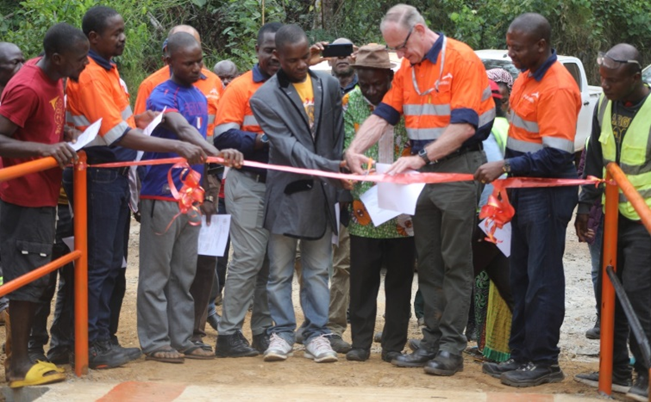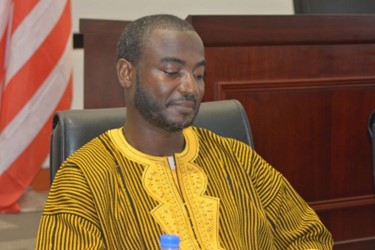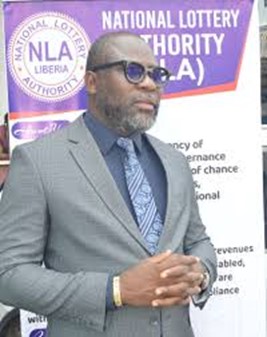Certainly, like in many African nations, corporate social benefit plays a crucial role in supporting and enhancing rural communities in Grand Bassa, Nimba and Bong counties.
In Liberia, ArcelorMittal Mittal on an annual basis pays US$500,000 to Bong County, US$1 million to Grand Bassa County and US$1.5 million to Nimba for social development.
This initiative has for about 15 years now demonstrated ArcelorMittal’s commitment to social responsibility and contributed positively in various ways.
From the construction of schools, roads, clinics, playgrounds and the provision of local and international scholarships, this commitment to the people of Liberia has helped to improve community well-being, create positive relationships and yielded long-term advantages for small businesses in the areas they operate in.
For example, the Government of Liberia (GOL) and ArcelorMittal agreed that the company withholds 20% of its social development funds for these three counties for the purpose of implementing needed projects in the communities nearest its operation.
This funding has, in counties like Grand Bassa, seen the construction of a modern public school in Kpu Town, which replaced a mud makeshift building used for school since the end of the civil war.
“We have also witnessed the dedication of Gorblee High School fence project, which cost more than US$90,000, and the expansion of the Radio Wee in Compound Three, Grand Bassa County,” ArcelorMittal said.
By investing in local education, healthcare and infrastructure, corporations like ArcelorMittal are directly helping underprivileged communities that host its mining and logistics operations uplift the quality of life for residents.
“We cannot forget how the company has heavily invested in local and international training of young Liberians, thereby contributing to a more educated and healthier business and mining sector workforce, which in turn can help Liberia boost productivity and economic growth,” the company stated.
Furthermore, AML’s corporate social benefits is fostering stronger connections between businesses and the communities they serve. The company has been engaging in philanthropic activities, supporting local events and participating in community projects to build goodwill and trust.
This is the kind of positive reputation that can increase business interest, boost employee’s morale, encourage investors, and as well ultimately benefit the general business climate in the country.
Moreover, ArcelorMittal’s prioritization of sustainability and ethical practices contributes to a healthier environment and a better future for the communities affected by its operation.
The company has managed to control and significantly reduce pollution, helped with conservation of the East Nimba Nature Reserve (ENNR), which is located near its mine, and improved quality of life for residents.
ArcelorMittal’s corporate social benefits are without doubts essential for the well-being and growth of local communities, especially when it comes to creating a symbiotic relationship where both the company and the community thrive together, fostering economic, social, and environmental progress.
In conclusion, it is of clear-cut significance that the Government of Liberia (GOL) and its people pay attention and give approval to the request of the concession for expansion of its activities beyond its current eight-year lifespan.
With ArcelorMittal’s expansion plan as detailed in the 3rd Mineral Development Agreement (MDA), Liberians stand to benefit increasingly in terms of social development funds as well as general taxes and royalties that could be paid to government to help solve some of Liberia’s challenging social issues.
A new investment in the tone of about US$1.2 billion for Liberians should not be let alone, especially when such an offer is made by a company which has stood with Liberia in some of her difficult days since the end of war.
AML’s commitment to Liberia remains undiluted, given her position as not just a private-sector leader but also the largest taxpayer three years counting, which has been crucial for funding government’s operations, public infrastructure, social programs, healthcare, education, and other essential services that contribute to the overall well-being of the Liberian society.







